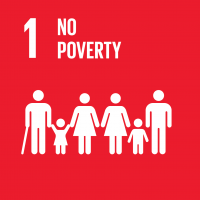SDG Hub - Explore how the marine ingredients industry is adopting SDGs
The UN Sustainable Development Goals (SDGs) are the blueprint to achieve a better and more sustainable future for all. SDGs are now used as a framework by many organisations to measure and track their sustainable strategies and actions. To share best practice across our industry and highlight examples of action, we have gathered a collection of short articles from our members showing action across the world. Each action is linked to the company website to find out more. Click on a tile and explore...
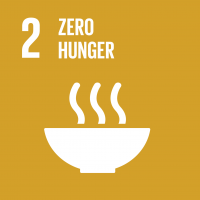

Zero Hunger
CFG-Copeinca: Social Responsibility Program
In 2021, CFG-Copeinca donated 4 tons of food to the communities where we operate, including food baskets of basic necessities and support for soup kitchens. In this way, we benefited more than 13,000 members of our direct areas of influence.
Zero Hunger
Hayduk: It is a priority for our organization to foster a business model committed to a sustainable management of the whole value chain, transverse to each of the processes within our production activity. In this context, we have been working towards a business model based on sustainability as a fundamental pilar and a positive influence in our main stakeholders, through sanitary prevention, through healthy diet promotion programs, through the execution of higher education programs with high-quality education institutions, through the safety and well-being of our employees, through loans given to our main allies, among other actions related to 10 of the 17 sustainable development objectives.
- Donation of marine products in the Hayduk influence areas. This is how we seek to encourage the consumption of food high in iron and omega.
- Donation of Campomar canned products boxes to the frequent ship operators, before starting each of the fishing seasons to support and help their families.
These initiatives correspond to the commitment of goals 2.1 and 2.2 of SDO 2 Zero Hunger (Hambre Cero). Find out more
Zero Hunger
TASA donated 16 tons of food to artisanal fishermen and vulnerable families (April, 2020). In line with its permanent commitment to the families that form part of the communities where it operates, the Peruvian fishing company TASA, delivered more than 10,000 kilos of frozen mackerel to thousands of artisanal fishermen and low-income families during the first week of April. This was done through each of the municipalities in the areas where it operates.
The company also delivered 950 baskets with groceries (rice, sugar, milk, oil, vegetables and noodles). The donation of fish and baskets made by TASA in the various ports of the country totals 16 tons of food and has benefited more than 13,000 families. Additionally, the Producer Associations (APRO for its Spanish acronym), in which the company participates, have delivered 2,300 additional food baskets.
Also, through the National Fishing Association, TASA contributes to a campaign to fight anemia in the communities where fishing companies operates, providing fish to soup kitchens in the Peruvian South.
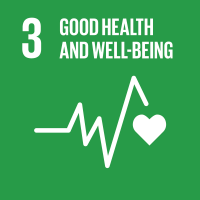

Good Health and Well-being
Skretting: One of the cornerstones of RoadMap 2025 is to employ talented and passionate professionals. At Skretting, we want committed employees; people who are proud to work for the global leader in aquaculture nutrition, because these are the most important ambassadors of our brand and our global purpose of ‘Feeding the Future’. Throughout 2020, our local teams were heavily focused on supporting their communities through COVID-19. In addition to initiatives focused directly on supporting clients, our team at Skretting Ecuador helped over 10,000 families during 2020. Those families were affected not only by COVID-19, but also by the economic downturn Ecuador is facing. Skretting Ecuador joined the government of Guayas and other private companies to implement disinfection tunnels in markets, hospitals and areas with the highest number of citizens aimed at mitigating contagions.
Mas información aquí...
Good Health and Well-being
Safestart at Pesquera Diamante: International Safety Company raises awareness about risks at work
Reaffirming the commitment to the health and safety of all its employees, Pesquera Diamante, has been deploying an important Safety Awareness Program with the main objective of reducing critical errors.
Safety at work is currently a necessary issue in all companies. The fishing sector is no stranger to the fact that its operating, administrative and crew personnel are exposed to minor and serious incidents. In this sense, a solid, transversal and powerful program of Health and Safety at Work is needed that prevents and mitigates the risks associated with fishing and productive activity.
Pesquera Diamante joins SafeStart, a leading international security company, with the objective that each Diamante employee identifies and knows the dangers to which they are exposed in their day-to-day lives, to handle them in a conscious way and avoid mistakes. The program focuses on transforming the organizational culture with a focus on safety; Through training and techniques of the SafeStart methodology, it will be possible to reduce critical errors throughout the company, improving the concentration of employees in their work activities and even in their daily lives.
Pesquera Diamante reports that the entire implementation process takes 4 years and the goal during this first year is to reduce work accidents by 20%, and after that, continue to have a sustained reduction in accidents.
The fishing company says that its 1,200 employees throughout the country will be able to train under this preventive methodology.
"We are the first fishing company to implement this important SafeStart program, because the safety of employees is our priority," said Pablo Trapunsky, General Manager of Pesquera Diamante. Find out more....
Good Health and Well-being
In 2019, TASA executed a census to inquire about the living conditions, health and economy of the families of its workers. With the gathered information, TASA designed programs seeking to improve the living conditions of its collaborators and their families. For example, through the “healthy family program” TASA has been improving the housing conditions of workers who do not have basic services through a solidarity fund. It has also implemented personal and business finance programs to improve the management of the domestic economy of its employees. More information here...
Good Health and Well-being
Austral COVID-19 Corporate Committee: Faced with the pandemic and the great challenge of operating in this new situation, we have a COVID-19 Corporate Committee made up of leaders from all functional areas of the organization and the Management Committee, with the responsibility of integrating the local plant committees and floats. The main objective of this committee is to guarantee the continuity of operations by complying with health regulations, attending to new operational needs and responding quickly to risks and possible contingencies in this environment.
"Move" program: It is a program that seeks to promote physical activity and healthy entertainment for children and young people from 05 to 18 years old, with the participation of boys, girls and young people in workshops such as volleyball, soccer, athletics, seafaring, theater, karate and typical and modern dances. With the onset of the pandemic and strict quarantines, we decided to continue with this initiative virtually, in order to provide a recreational space within the sedentary lifestyle generated by these measures.
"Your future" program: A direct effect of the pandemic was unemployment affecting seriously to youth populations. Therefore, we signed an alliance with the “Forge Foundation” to develop the “Your Future” program, providing 101 scholarships to young people who neither study nor work (NEET) in our areas of influence and children of workers. The objective was to train them in soft skills and technical courses that allow them to enter the labor market.
Good Health and Well-being
Hayduk: It is a priority for our organization to foster a business model committed to a sustainable management of the whole value chain, transverse to each of the processes within our production activity. In this context, we have been working towards a business model based on sustainability as a fundamental pilar and a positive influence in our main stakeholders, through sanitary prevention, through healthy diet promotion programs, through the execution of higher education programs with high-quality education institutions, through the safety and well-being of our employees, through loans given to our main allies, among other actions related to 10 of the 17 sustainable development objectives.
- Logistics Support: coordination to have our crew members confined in hotels with the objective of preventing contagion at the beginning and during the fishing activity; establishing a sanitary bubble in favor of the crew members’ well-being. In the case of the infected employees, in the factory and in the fleet, they received staple food, continuous monitoring, medical assistance, among other actions. Also, 13,720 COVID-19 tests were taken before the season started.
- Active contribution in the fight against COVID-19 through surgical masks donation, economic support to install and oxygen plant, a double flow oxygen concentrator, ICU beds and medical equipment in general.
It is important to mention that these activities were carried out in alliance with the following institutions: City Hall of Paita, City Hall of Végueta, ACOMADES Sechura, EsSalud Hospital III Chimbote, and the National University of San Marcos.
These initiatives correspond to the commitment of goal 3.8 of SDO 3 Health and Well-being. Find out more
Good Health and Well-being
CFG-Copeinca: Social Responsibility Program
From our Social Responsibility program, we promote the integral health of all members of the communities, to improve their quality of life; developing actions that cover various specialties. Among the main activities we carry out are: medical campaigns for physical and mental health, improvement of health facilities, delivery of medical equipment, among others.
Following the COVID-19 pandemic, we redirected our efforts to care for our employees, families and communities. Once we had identified, developed and established the objectives of prevention and health care in general, we prioritized the care of vulnerable populations in the communities of our headquarters, through awareness campaigns, the timely supply of medical supplies and protective equipment, and support to state institutions.
Either directly through our offices, or in strategic alliance with the Producers' Associations (APRO), we have participated and collaborated with all our areas of direct influence with donations of: medical oxygen plants, medical supplies (test, oxygen concentrator, thermometer, etc.), PPEs (mask, face shield, safety suit, etc.), disinfection supplies (bleach, alcohol, liquid soap, etc.), medical personnel fees, among others.
Armada de Hierro (Iron Army):
As associates of the National Fisheries Society, we support the social responsibility program "Armada de Hierro", which seeks to fight against childhood anemia in the country's fishing areas. For this reason, the SNP has created strategic alliances with both ESSALUD and MINSA to combat anemia in children under 3 years of age in the communities of our direct areas of influence.
Partnership with RIMAC:
“Yo me cuido” (“I take care of myself") Campaign: In partnership with RIMAC and the National Fisheries Society, we held interactive workshops aimed mainly at our employees who are parents at all our sites, which addressed topics such as: control of emotions, mental health, and prevention of anemia in children.
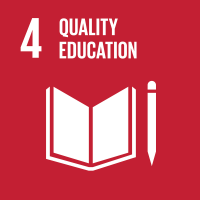

Quality Education
Hayduk: It is a priority for our organization to foster a business model committed to a sustainable management of the whole value chain, transverse to each of the processes within our production activity. In this context, we have been working towards a business model based on sustainability as a fundamental pilar and a positive influence in our main stakeholders, through sanitary prevention, through healthy diet promotion programs, through the execution of higher education programs with high-quality education institutions, through the safety and well-being of our employees, through loans given to our main allies, among other actions related to 10 of the 17 sustainable development objectives.
- As part of our Alliance with UTEC, we implemented the Program “Viento en Popa” (“Smooth Sailing”), which purpose is to bestow a full higher engineering studies scholarship to the children and grandchildren of our employees.
This initiative corresponds to the commitment of goal 4.3 of SDO 4 Quality Education. Find out more
Quality Education
Austral: Campaign "Violence is not a defect, it is a crime": Given the high rates of violence against women reported during the quarantine, we carried out a digital campaign aimed at the community. For two weeks, publications, training webinars and videos were made on our Facebook and Linkedin platforms, in order to promote respect and protection of children and women in all senses. Code of Ethics: At Austral we are committed to consolidating an organizational culture based on solid ethical principles that guide our behavior and the decision-making of our employees, customers, suppliers and representatives in general. The Code of Ethics has been prepared based on our organizational principles and is an important part of our Compliance Program. More information here...
Quality Education
American Seafoods: Through the Pollock Conservation Cooperative (PCC), founded by American Seafoods and other harvest companies, we’ve established a research center at the University of Alaska Fairbanks to improve members’ knowledge of the North Pacific Ocean and the Bering Sea. PCC is the largest private donor to the university.
American Seafoods also takes leadership positions in industry efforts to research and advance seafood sustainability through our participation in the Global Sustainable Seafood Initiative (GSSI) and Alaska’s Responsible Fisheries Management Program.
Quality Education
TASA:
In 2022, we implemented the Redes de Aprendizaje program to strengthen the capacities of teachers and caregivers in the communities where we operate to meet the challenges of post-pandemic education. As a main result, we were able to train 220 teachers on environmental education, learning methodologies and formative evaluation.
For this year, we expect to consolidate teacher training to promote the implementation of community projects associated with the environment, accompany teachers and caregivers in the recovery of learning in students, and provide tools for socioemotional support.
In 2020 we strengthened our corporate volunteering and developed, together with Aporta, the Aprendo con TASA program. This program was born with the purpose of accompanying the sons and daughters of our employees to contribute to their educational advancement.
In its third edition (2022), the objective of Aprendo con TASA was to virtually accompany TASA families with strategies, resources and support on key issues in the education of children between fifth grade and fifth year of secondary school. This was done through two axes: counseling for caregivers and support for students in the areas of communication and mathematics, through the accompaniment of volunteers.
In 2022 we surpassed our goals, as we benefited 105 TASA families and 107 volunteers in both phases. TASA families and 107 volunteers in both phases of volunteering. This represents more than 1,000 hours of continuous accompaniment for students and 200 hours of training for volunteers.
By 2023, we expect to accompany TASA families through student accompaniment
accompaniment for students, specialized workshops, and counseling for families and counseling for families according to identified needs. In addition, we will we will continue to strengthen our volunteer loyalty strategy to improve the volunteer experience. to improve their experience.
Quality Education
Austral: Online trainings: Despite the fact that many of them were not very familiar with the technological environment, we were able to work on-line technical training with success. In the case of operators, we developed technical courses and seminars developed: Conversations on Emotion Management, Maneuver Safety Courses, IPER, Winch Operator, all in online mode.
“Learn and Undertake” Program: Women Entrepreneurs
Aimed at the wives of our collaborators through, with whom we seek to enhance their skills as entrepreneurs through productive personal and technical development workshops.
Austral Green Program: It is focused on increasing good practices in favor of the environment on the part of our collaborators and members of the community. Within the framework of our social and environmental responsibility, we carry out participatory beach cleaning days with the communities.
EcoCharlas Program: At Austral we have an Eco-Talks Program, which is disseminated weekly to our collaborators and third-party personnel with topics aimed at caring for our environment. We carry out activities to raise awareness among workers about the proper segregation of solid waste and its recovery oriented towards a circular economy.
Viva Valores, Viva Austral: The program aims to empower boys, girls and young people as citizens aware of the environment in which they live. 98% of teachers claim to have shared these trainings with their colleagues and students and have noticed an improvement in their pedagogical practices. More information here...
Quality Education
BioMar Group: 100,000 people directly engaged in capacity building initiatives by 2030
At BioMar we will actively engage our entire value chain as we believe we can create a far-reaching impact on the world through capacity building as this lies at the core of all resilient societies.
We will provide training courses and development programs for employees, farmers and communities. We will actively engage in third party agricultural and fishery improvement programmes and supplier improver initiatives. Through these initiatives we aim to directly enable 100,000 people per year by 2030.
We will promote human and labour rights through initiatives like responsible pay and diversity targets. Through innovation we will create aquafeeds enabling people to make healthier and more sustainable food choices. We will continue our commitment of active participation in the public debate around sustainable nutrition. More information here...
Quality Education
CFG-Copeinca: “Logros de Aprendizaje” (“Learning Achievement”) Program
At CFG-Copeinca we are committed to the sustainable improvement of the skills and competencies of children and young people in our society, promoting personal and academic development, in addition to improving local educational quality. For this reason, we work permanently in coordination with the education sector, state entities and non-governmental organizations, to improve the infrastructure of schools in our areas of direct influence and provide support for academic activities, through tutoring workshops, support with teachers, acquisition of necessary materials, among others. One of the initiatives promoted in this area was the creation of the Learning Achievements program, which began in 2018, in the educational institutions of our communities of La Planchada and Bayovar.
Development of Productive Capacities:
We firmly believe that training plays a fundamental role in the development and growth of the whole family; consequently, we implement initiatives that strengthen skills and productive capacities, in order to generate more and better opportunities. Among these actions are workshops in cooking, baking, computer skills, carpentry, among others, which are aimed primarily at mothers and young people in our direct areas of influence.
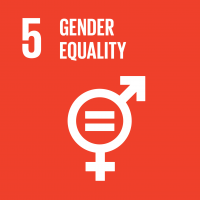

Gender Equality
At Skretting, we recognise the importance of supporting people in the early stages of their career, and ensuring that they are given every opportunity to thrive within our organisation. As part of our strategy to find and nurture emerging talent, we are committed to providing challenging opportunities and a framework to guide career growth for individuals in all of the regions and communities that we operate in.
In 2020, Skretting Egypt was recognised with a Lapwing Award from our parent company SHV for an important training and employment programme it has introduced for women and young people in the country. This initiative, which is being conducted in collaboration with the Sawiris Foundation for social development and the Netherlands embassy in Egypt, has been providing training in such areas as quality and laboratory analysis, production processes, purchasing, sustainability and living our values. It’s also seeking to encourage the rights of young women.
Gender Equality
CFG-Copeinca: Gender Equality Model Program – MIG SCORE
As a company associated with the National Fisheries Society, CFG-Copeinca signed a collaboration agreement with OWIT Peru, an international institution that has been promoting the participation of women in professional activities, for the implementation of the ILO's "Gender Equality Model Program - MIG SCORE" in April 2022. This initiative seeks to achieve gender equality in the industrial fishing sector. In this way, the SNP becomes the first guild of a productive sector in Peru to use this tool, which will strengthen the management within our organization to have safe, respectful and inclusive work environments.
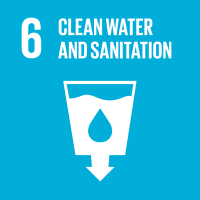

Clean Water and Sanitation
At TASA, we are aware that in order to achieve an Excellent Operation it is necessary to be a responsible company with our environment and generate a positive impact on it. That is why, aligned with our value of Safety and Sustainability, we are committed to working on the reduction of Greenhouse Gas (GHG) emissions in our operations, being efficient in the use of water and prioritizing the recovery of waste to mitigate the effects of climate change by 2030.
Clean Water and Sanitation
CFG-Copeinca: MARES Program
CFG-Copeinca has implemented good environmental practices at each of its sites as part of the "MARES" (“SEAS”) program. Among the main initiatives are:
- Uncover, recycle and help: which consists of collecting plastic bottles and caps generated at the headquarters and in the homes of employees, in order to introduce this waste into the Circular Economy through the donation of these to various institutions that in turn help people with low economic resources and disabilities.
- Your paper will return smiles: Consists of collecting paper and cardboard generated at the headquarters and in the homes of employees, in order to introduce this waste into the Circular Economy through the donation of these to the institution ANIQUEM, which helps the treatment of children who are burn survivors.
- CINEMARES: Initiative that projects environmental documentaries, where the impact we generate on the environment while we carry out our daily activities and consume various resources is made known. The objective is that, through a recreational way, we can achieve awareness and strengthen the environmental culture in each of the employees of the corporation, generating a multiplier effect within their daily activities, both work and personal.
- Beach cleaning: Thanks to the support of our collaborators, we reaffirm our environmental commitment to the care of our seas through "BEACH CLEANING DAYS", removing solid waste washed up by the waves.
- Wetlands cleaning: We are aware that wetlands are a natural solution to climate change, as we know many of the CFG - COPEINCA plants are located near wetlands, and respectful of their importance we participate in environmental care and maintenance of them.
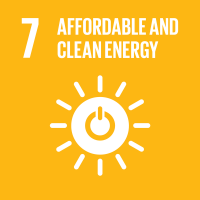

Affordable and Clean Energy
At TASA, we are aware that in order to achieve an Excellent Operation it is necessary to be a responsible company with our environment and generate a positive impact on it. That is why, aligned with our value of Safety and Sustainability, we are committed to working on the reduction of Greenhouse Gas (GHG) emissions in our operations, being efficient in the use of water and prioritizing the recovery of waste to mitigate the effects of climate change by 2030.
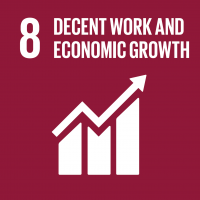

Decent Work and Economic Growth
Skretting: Since 2015, as part of the “creating shared value” concept adopted by Skretting and parent company Nutreco to engage with small-scale, marginalised farmers in the communities that we are present, we have been managing a project in Ibadan, Nigeria, aimed at generating opportunities through sustainable aquaculture. Partnering with a local NGO, the Catfish Sustainability Project (CSP) has convened hundreds of local fish farmers, shared bestpractice production protocols and given invaluable training to enable them to produce fish much more sustainably. The initiative is funded by Nutreco and Skretting Nigeria, and facilitated by the Justice, Development and Peace Commission (JDPC) in Ibadan.
In January 2020, the fourth phase of CSP got underway with a target of adding a further 233 catfish farmers to the existing 467 project beneficiaries. At the end of the year, 175 new beneficiaries were added, totalling 642 catfish farmers (comprising 519 males and 123 females in 35 catfish farmer groups).
Following the objective of encouraging sustainable aquaculture system, the catfish farmers have been frequently trained on best management practices, while implementation was ensured through constant monitoring and technical advisory services. Some 69% of these producers adopted these innovative best aquaculture practices, achieving an average fish survival rate of 93.5%. These elements contributed to an average income of 548,641 Naira (EUR 1,100 approximately) for each participating catfish farmer in 2020.
Decent Work and Economic Growth
Austral Ethics Committee: The Ethics Committee is the competent and decision-making body regarding compliance with and application of the Code of Ethics, it acts by investigating and resolving the various complaints received through the Ethics Line. It is responsible for guaranteeing its operation, confidentiality and independence. Promotes the implementation of corrective measures and recommendations to prevent future breaches of the Code of Ethics from occurring again.
Right to collective bargaining: At Austral we recognize and respect the right to unionization and collective bargaining contained in the Law on Collective Labor Relations and its Regulations.
We participate in collective bargaining with a proactive attitude and we are in constant communication with the leaders and members of each union.
Occupational Health and Safety Management: Our Occupational Health and Safety Management System, implemented in each of our operations, is based on prevention through safe behavior and improvement of the conditions of our work environment, and the commitment of senior management. The activities of each job position and those carried out by the contractor personnel are controlled through the application of security procedures.
"Growing Together" Program: This program has been carried out in alliance with FONDEPES and PRODUCE, and its objective is to contribute to the development of artisanal fishermen in our areas of influence by promoting organizational strengthening and its formalization.
Decent Work and Economic Growth
Hayduk: It is a priority for our organization to foster a business model committed to a sustainable management of the whole value chain, transverse to each of the processes within our production activity. In this context, we have been working towards a business model based on sustainability as a fundamental pilar and a positive influence in our main stakeholders, through sanitary prevention, through healthy diet promotion programs, through the execution of higher education programs with high-quality education institutions, through the safety and well-being of our employees, through loans given to our main allies, among other actions related to 10 of the 17 sustainable development objectives.
We carry out activities such as monitoring the management indicators, which seek to prevent work accidents and occupational diseases, as well as diverse health campaigns for the well-being of our employees. OSH management includes activities such as:
- OSH Activities Program: in 2021 the members of the OSH sub-committees carried out over 473 safety inspections, 12 meetings with the OSH central Committee, an activity on Safety Day, 5-minute talks, occupational medical examinations, internal audits and an external audit was carried out by an auditor accredited by the Ministry of Labor and Employment Promotion, implementing 5 occupational health preventive programs, among other activities.
- OSH Training Program: every year we make improvements in the OSH Management System. In this sense, in comparison to other years, the actions regarding Occupational Health have been strengthened. We carried out activities with nutritionists, we carried out the “Hayduk Challenge” program, and we reinforced the campaigns to keep well-being, such as Workplace exercises that are part of the Life Quality Preventive Program. In 2021 we chose 24 training subjects; 8 were presented by our professionals and 16 were presented by external staff, complying at 100%
These initiatives correspond to the commitment of the goal 8.8 of OSH 8 Decent Work and Economic Growth. Find out more
Decent Work and Economic Growth
TASA: La Red is a project promoted by the Peruvian fishing company TASA that proposes a sustainable fishing model in coordination with artisanal MYPES in Chimbote. This model contributes to the productive development of the actors of the artisanal fishing community, mainly fishermen, based on compliance with sustainable, responsible fishing and good sanitary practices.
Under this model, key actors, such as the National Innovation Program for Fisheries and Aquaculture and the Provincial Municipality of Santa, among others, have joined forces to generate better conditions, such as the installation of the first artisanal processing plant, which has made it possible to make better use of marine resources for processing into value-added products that are currently serving markets in Ancash and Lima.
At the same time, it is a model that shows the real importance and significant contribution of the actors of the artisanal fishing community, mainly the artisanal fishermen, as a social group that promotes and ensures the strengthening of a sustainable artisanal fishing culture that protects the resources for the future, based on good voluntary fishing practices, such as: respect for the sizes and closed seasons, and the use of non-harmful fishing gear. This culture represents an important intangible asset for the sector that in recent years has been strongly linked to the overexploitation of resources.
Decent Work and Economic Growth
Brim encourages employees to pursue a healthy lifestyle and take care of the environment. The company contributes to this by:
• Offering all employees an annual medical examination and counselling.
• A doctor or nurse is present twice a month at Brim’s offices in Norðurgarður and employees are able to seek consultation.
• Influenza vaccination is available to all employees in the workplace.
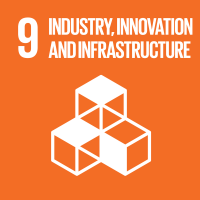

Industry, Innovation and Infraestructure
In 2015 BioMar Group launched its first ever global sustainability improvement programme set for a five-year period. In our 2020 Sustainability Report we conclude on this KPI programme and of the 13 ambitious targets set, we hit the mark on 9. This work laid the foundation from which the new 2030 Ambitions have been built.
“We believe in transparency and even through some KPIs might seem too ambitious, we strive to aim high and disclose what we, and have not achieved. We believe in the sustainable future of the aquaculture industry and look forward to continuing to drive change,” concluded Carlos Diaz. Find out more...
Industry, Innovation and Infraestructure
Austral: 100% of boilers in Center/North plants supplied by natural gas. The implementation has a significant impact in reducing our carbon footprint as well as reducing sulfur emissions.
Eco-efficient fleet: We have the most modern and eco-efficient anchovy vessel in Peru. It is equipped with 4th generation engines, which generates a reduction in fuel consumption of up to 35%, complying with European gas emission requirements.
Total Productive Maintenance (TPM): Austral is implementing TPM (Total Productive Maintenance) as a tool for continuous improvement in Chancay plant. The objective is increasing productivity while maintaining a high level of quality in the final product. Pilot areas include the maintenance workshop as well as the industrial effluent process plant. TPM will be then deployed to all plants in the next years. Find out more...
Industry, Innovation and Infraestructure
Austral: Suggestion program "Hazte una Pez": Our suggestion program for innovation has received 126 suggestions since its launch (August 2015) until April 2021: 68 have generated a positive impact for US $ 385K in the first year alone. The main areas covered by these suggestions are linked to the recovery of organic matter, process optimization, energy saving, water recovery, among others.
Innovation Maturity Index (IMI 2020): Austral participated in the IMI 2020 by the Peruvian University of Applied Sciences and KPMG. As a result, Austral obtained a score of 70% (Experimenter Level) above the level of our sector (66%) and the country (65%). This traduces the leadership in the organization allowing the innovation cycle to develop from end to end.
Invention patent registration: In 2020 we successfully registered our first patent "Procedure for the elaboration of fishmeal enriched with protein hydrolyzed from marine sources" at INDECOPI. Find out more...
Industry, Innovation and Infraestructure
TASA, signed the first voluntary Clean Production Agreement (CPA) of the fishing sector in Peru with the Ministries of the Environment and Production, through which it commits to implement strategies for the efficient reuse of disused goods and the management of solid waste, thus marking a milestone in the development of the circular economy in the industry.
Through the CPA, a set of actions will be introduced in TASA’s productive activities, in compliance with current national environmental legislation, improving the conditions for the prevention and / or minimization of solid waste generation. It is an experience that has had favourable results in countries such as the Netherlands (where it has been in force for more than 20 years), Germany, the USA, Canada, among others. Among the actions that TASA will carry out within a year through the CPA are: the development of environmental education projects in schools aimed at minimizing, valuing and properly managing solid waste; providing support and impetus to “at the source” waste separation programs and municipal solid waste collection; training of personnel in waste separation best practices; and development of proposals for the use of key business waste.
TASA has also implemented an environmental citizenship program, through the training of more than 300 local community teachers from the areas where it operates, on issues such as the waste segregation “at the source”, valuation through compost and water care... Mas información aqui...
Industry, Innovation and Infraestructure
Hayduk: It is a priority for our organization to foster a business model committed to a sustainable management of the whole value chain, transverse to each of the processes within our production activity. In this context, we have been working towards a business model based on sustainability as a fundamental pilar and a positive influence in our main stakeholders, through sanitary prevention, through healthy diet promotion programs, through the execution of higher education programs with high-quality education institutions, through the safety and well-being of our employees, through loans given to our main allies, among other actions related to 10 of the 17 sustainable development objectives.
- Switch of the energy matrix in Coishco, as part of our environmental policy, in 2018 we switched the energy matrix to natural gas in our factory located in Coishco, Chimbote.
This initiative corresponds to the commitment of goal 9.4 of OSH 9, Industry, Innovation and Infrastructure. Find out more
Industry, Innovation and Infraestructure
American Seafoods
THE FISHERIES: We fish primarily in two locations: the Bering Sea for Wild Alaska Pollock, and the North Pacific Ocean for hake. Both fisheries are Marine Stewardship Council (MSC) certified sustainable and are sustainably managed by the National Marine Fisheries Service (NMFS).
THE BOAT: We are proud of our fleet of six fishing ships. Here, we’ve narrowed it down to one boat to show you what a fishing season looks like.
THE FISH: On every vessel, we freeze our fish products while also processing rendering products within hours of the catch, in order to lock in all the essential nutrients such as protein and omega-3 fatty acids. The products are then tracked from the location of the catch to every part of our supply chain to ensure full traceability.


Reduced Inequalities
CFG-Copeinca: CRECER Program
As an organization, we seek to contribute to the happiness of our employees by generating growth opportunities for them at all levels. Thus, in 2019, we launched the "CRECER" program, a personal development program, which aims to provide our employees with the necessary facilities to complete their basic education and obtain certification of the same, training that takes place in our own facilities and during office hours during closed seasons. In November of the same year, our organization was part of the working group with businessmen organized by the Peruvian Ministry of Education. The purpose of this event was to generate joint actions aimed at implementing and promoting the Alternative Basic Education (EBA) modality.
In 2021, we were finalists in the ABE AmCham Peru Awards, in the Diversity and Inclusion category, thanks to our CRECER personal development program. This nomination highlights the great efforts made by our organization to continue providing growth opportunities to our employees in an inclusive manner.
INSPIRA Corporate Volunteering:
“Sé Digital” (“Be Digital”) Workshops: Volunteers from our corporate program "INSPIRA", in alliance with the Arco Iris Children's Foundation, offered the "Be Digital!" workshops, aimed at the parents of the beneficiary families of this foundation located in Urubamba-Cusco. There were several sessions in which participants were able to improve their technological skills and thus become more involved in their children's learning.
Reduced Inequalities
TASA: In 2019 we implemented the Bienestar de Familias project, under the framework of the sustainability strategy, which has as its ambition, to contribute to the development of the environment; especially, of our employees and families.
This project has 03 axes:
- Solidarity Fund: attention to critical cases of housing and physical health.
- Financial health: to provide information for the management of personal finances and financial solutions.
- Mental health: generate a culture of 'self-care' and attend to cases in a timely manner.
As part of the diversity, equity and inclusion (DEI) strategy, in 2022 the DEI policy was renewed at TASA, whose objective is to establish the principles, criteria and guidelines that ensure an inclusive work culture, without discrimination for any reason and provide equal professional opportunities for all people.
It also aims to guide the implementation of action plans that value differences and diversity in all its dimensions. In addition, in order to ensure compliance with the policy, the TASA DEI Committee was created, managed by the Human Resources Management.
This committee is made up of a diverse and equal team, which has been sensitized and trained in gender and diversity issues. The team is responsible for leading, promoting, executing and monitoring the organization's DEI action plan.
Our DEI action plan last year was composed of three axes:
- Basics: Introduce DEI concepts, establish guidelines and promote the value of differences.
- Gender: Review of processes to ensure equity and encourage safe spaces.
- Disability: Preparing employees to welcome new talent with disabilities.
talents with disabilities
Reduced Inequalities
OLVEA has implemented the following projects
- Reinforcement of women’s involvement in the Sesame supply chain through the IFIS project in Burkina Faso
- Emphasis on the fight against all forms of discrimination
- 16% of new employees hired under inclusive contracts in 2019
Reduced Inequalities
Hayduk: It is a priority for our organization to foster a business model committed to a sustainable management of the whole value chain, transverse to each of the processes within our production activity. In this context, we have been working towards a business model based on sustainability as a fundamental pilar and a positive influence in our main stakeholders, through sanitary prevention, through healthy diet promotion programs, through the execution of higher education programs with high-quality education institutions, through the safety and well-being of our employees, through loans given to our main allies, among other actions related to 10 of the 17 sustainable development objectives.
- We gave loans to the ship operators to maintain their fishing vessels, before the fishing season started.
This initiative corresponds to the commitment of goal 10.2 of OSH 10 Reducing Inequalities. Find out more
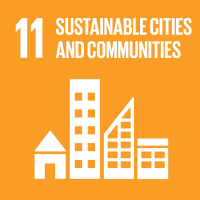

Sustainable Cities and Communities
Pesquera Diamante: Building quality community life
We focus social investment within a framework of commitment to establish lasting relationships between our company and the communities where we operate, with the clear objective of evidencing and consolidating our position as an active agent.
We promote initiatives that associate the characteristics of the community and that mean a real investment in the future, favoring its development, contributing to its education, health, incentive of capacities and the integration of disadvantaged groups through activities and social programs of civic action and recreation in favor of a better quality of life for the inhabitants.
We are also part of the Association of Fishmeal and Fish Oil Producers (APROS), with whom we work in coordination to join efforts and promote responsible and sustainable fishing. Find out more
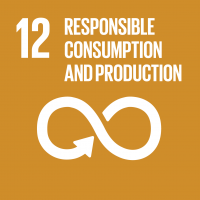

Responsible Consumption and Production
At Alltech Coppens, we focus on utilising resources responsibly and producing in sustainable ways that will help mitigate the harm inflicted on the planet. To ensure sustainable production, we have established a comprehensive waste management system. When producing high-quality feeds, each production batch needs to be fine-tuned. If our first output does not meet quality standards, it is deemed ‘rework.’. These quality standards include shape and size. During the production process, we sieve the fish feed at different stages. This ensures that when a customer orders 3 mm pellets, they only receive 3 mm pellets. The pellets that are too small or too large are collected and become rework. Because we have 100% traceability, we know exactly which raw materials are in this rework. We can then specifically reprocess these in production so that nothing goes to waste.
Nearly all rework that emerges in our production is re-used in our production. If we cannot re-use it, we sell this feed to a bio-fermenter, which produces energy from this feed waste! Third parties also re-use broken and old wooden pallets, plastic packaging material, dirty and used big bags and IBC tanks. Plastics and big bags are reprocessed into recyclate, which is used for new packaging, while leftover oil and fat are used to generate energy. Cartridges and lids also still have value after use. Alltech Coppens donates empty cartridges to Stichting Dierenlot, a Dutch charity that supports local and regional, small and medium-sized organisations that rescue animals in need. Find out more...
Responsible Consumption and Production
Marine Biotechnology Products Ltd: Mauritius tuna industry moves towards circular economy and zero waste In order to reduce its carbon footprint and move towards zero waste, the Mauritius tuna industry will transform production effluents into biogas, creating an alternative green energy to power factories. With a production of approximately 110,000 mt of whole tuna per year, the process begins at the cannery for human consumption, and the trimmings are sent to the fishmeal and fish oil plants. Until now all the effluents from these factories were processed for fish solubles and then chemically removed before going to wastewater. With the new Energie des Mascareignes plant, we will create biogas as an alternative to fossil fuels to run the boilers in our own factories and thus reduce waste and the cardon footprint. “With our fishmeal and fish oil production units, we were already adding value to the remaining co-products of the canneries. Now, the natural resource fished in the oceans, we have managed to generate a circular economy framework where fish is used to the maximum and nothing is wasted”, explains Cougen Purseramen, COO of IBL Seafood. This was made possible thanks to the expertise of our Green Create partners and an investment from IBL Energy, but also thanks to the 20-year agreement signed with Princes.” Find out more...
Responsible Consumption and Production
Austral
Effluents Treatment: Austral has implemented a modern technology for the treatment of effluents that allows us to comply with the Maximum Permissible Limits for the Fishmeal and Fish Oil Industry established by DS-010-2008 –PRODUCE. This makes us an eco-efficient company due to a better recovery of the solids and fat present in the pumping water, minimizing pollution and contributing to the sustainability of marine ecosystems.
Domestic wastewater treatment: Continuing with actions in favor of operational efficiency and climate change mitigation, in recent years we have been promoting the reuse of fresh water (from both wells and public network) through the implementation of domestic wastewater treatment plants (PTRD), using this treated water to irrigate green areas.. Find out more...
Responsible Consumption and Production
Aker BioMarine has committed to cutting CO2 emissions in half by 2030 and become net zero by 2050
In the last ten years Aker BioMarine has cut its CO2 emissions per ton krill produced by approximately 50 percent. The goal is to redo this in the next ten years. Aker BioMarine has already implemented several sustainability initiatives towards its goal, such as implementation of analytical tools to reduce consumption of consumables and energy at the Houston manufacturing plant, reuse of energy and efficiency projects on the vessels. These initiatives have put the company on course to reach its 2030 targets.. Find out more...
Responsible Consumption and Production
Hayduk: It is a priority for our organization to foster a business model committed to a sustainable management of the whole value chain, transverse to each of the processes within our production activity. In this context, we have been working towards a business model based on sustainability as a fundamental pilar and a positive influence in our main stakeholders, through sanitary prevention, through healthy diet promotion programs, through the execution of higher education programs with high-quality education institutions, through the safety and well-being of our employees, through loans given to our main allies, among other actions related to 10 of the 17 sustainable development objectives.
Hayduk commits to contribute to the care of biodiversity and so it is stated in our Policy of Integrated Management System. From our vessels to the processing factories, we follow strict protocols and guidelines that guarantee species sustainability and environmental care. To this end, we develop responsible fishing operations and we free by-catch. This is how we obtained these certifications which endorse such practices:
- Friends of the Sea in our fishing vessels: this certification fosters sustainable fishing and the marine ecosystem conservation.
- Dolphin Safe: traceability system that guarantees compliance with the international regulations regarding dolphins, for our vessels and for our Coishco canned products factory.
- ISSF: for Tuna fishing sustainability in our tuna fleet.
- Marin Trust: certification of responsible fishing in our plants of Malabrigo, Coishco and Végueta.
These initiatives correspond to the commitment of goal 12.2 of OSH 12 Responsible Production and Consumption and goal 14.2 of OSH 14 Underwater life. Find out more
Responsible Consumption and Production
EncompassTM, Scoular’s fishmeal brand, has launched a new marine sustainability program that incentivizes fishmeal producers to implement long-term sustainability practices that exceed standard certification requirements and meet growing consumer demand for high-quality ingredients. The goal is to collaborate with each customer to explore, define and customize their sustainability needs.
Key components of Scoular’s new marine sustainability program include:
- Creating end-to-end traceability and transparency for all of Scoular’s marine ingredients, from catching the fish to processing it into fishmeal and fish oil to transporting it to customers. Scoular can provide customers with data on everything from a fishery’s gear to a processor’s facility and safe labor conditions.
- Offering a unique seven-level classification system that uses this data to rate fishmeal producers and the supply chain. Scoular will track and support producers to bring their products to the highest valued market where Scoular services some of the most recognized brands and premium companies globally.
Read more...
Responsible Consumption and Production
Skretting’s Feed4Future - - This first-to-market offering has paired Skretting’s extensive knowledge of the nutritional requirements of aquaculture species with sustainable, lower impact feed ingredients responsibly sourced from carefully selected suppliers. In utilising Skretting’s groundbreaking MicroBalance technology and incorporating innovative raw materials and high-quality by-products sourced from the food industry that don’t compete with human consumption, Feed4Future diets have a 10% lower carbon footprint than standard diets, with the remaining CO2 emissions compensated for by carbon credits. Find out more...
Responsible Consumption and Production
Brim: The greatest environmental impact of our operation is due to the fuel use of the fleet. In recent years, the company has systematically worked on analysing carbon footprints from fishing to processing, together with increased use of environmentally friendly ships’ fuels. It should be noted that a number of variables can affect the calculation of fuel use, such as the composition of catches, catches and fishing patterns of individual vessels, as well as the weather. It is important to take these factors into account when concluding results based on figures published here and comparisons between years.
The total use of the fleet during the year was almost 22.5 million litres, which emitted 60 thousand tonnes of CO2 equivalents, catching 128 thousand tonnes. This is approximately 82% of the total emissions of the company, which is 78 thousand tonnes. All Brim vessels now use MGO or DMA fuels which have a sulphur content of 0.1%.
The share of the wetfish trawlers of CO2 equivalents emitted is 16 thousand tonnes, or approximately one-fourth. When the energy intensity of fishing is measured, i.e. how many litres of fuel are required to catch one tonne of fish, the wetfish trawlers are seen to use 281 litres. This is 801 kg of CO2 equivalents per tonne.
The share of the freezer trawler in carbon emissions during the year was more than 27 thousand tonnes of CO2 equivalents. Energy intensity for fishing on freezer trawlers is somewhat greater, or 350 litres for each tonne. This is 996 kg of CO2 equivalents per tonne.
The carbon emissions of pelagic vessels during the year was over 21 thousand tonnes of CO2 equivalents. The energy intensity of fishing was 89 liters of oil per tonne, or 255 kg of CO2 equivalents.
Brim’s fishmeal plants, previously run on fossil fuel, are now for the most part electrified. The total carbon emissions due to fuel use from the company's plants in 2020 were 1,327 tonnes of CO2 equivalents.
Brim's goal is to use environmentally friendly fuel. Through agreements for competitive electricity prices to fishmeal plants, we can expect the share of electricity use to increase even more at the expense of fuel use in the future.. Find out more...
Responsible Consumption and Production
BioMar feeds are 50 % circular and restorative by 2030
In BioMar we take action for our areas of responsibility. We encourage and stimulate restorative practices in our supply chain and we have set targets for minimum inclusion levels of circular and restorative ingredients.
BioMar considers raw materials originating from by-product and waste streams to be circular. We seek to decouple feed supply chains from directly competing with food for human consumption.
We define restorative ingredients as raw materials that significantly shift the balance between ecosystem impacts and human production systems towards net-positive environmental outcomes. An example of a restorative ingredient includes single cell protein produced from fermented forestry by-products. Find out more...
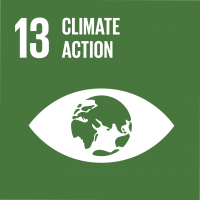

Climate Action
At TASA, we are aware that in order to achieve an Excellent Operation it is necessary to be a responsible company with our environment and generate a positive impact on it. That is why, aligned with our value of Safety and Sustainability, we are committed to working on the reduction of Greenhouse Gas (GHG) emissions in our operations, being efficient in the use of water and prioritizing the recovery of waste to mitigate the effects of climate change by 2030
Climate Action
Cargill SeaFurther: As a leader in aquaculture feed, animal nutrition and agriculture, we create high-quality feed with a smaller impact on the planet. And now we’re stepping up to do more: working with our partners to build a better aqua nutrition business that will help the seafood industry reduce its global footprint, and help fish farmers lower their impact too.
We’re launching with the goal of helping salmon farmers reduce their environmental footprint by 30% by 2030. This will help the industry save 2 billion kilograms of CO2, the equivalent of removing more than 400,000 cars from the road in one year.
Innovation is key and will underpin everything we do. Plus, we’ve set a target of a 15% reduction in GHGs by 2026, to help keep us on track. To ensure we focus our efforts on the areas where we can make the most difference in the seas and oceans of the world and work in the best and most sustainable way possible, everything we do is considered through the lens of these three key areas:
- Transforming supply chains
- Safeguarding farmed fish
- Innovating and enhancing
Climate Action
Pesquera Diamante: Certifications
Pesquera Diamante ensures that it’s operations and products comply with all the industry standards, including:
- The guarantee of a quality delivery: Business Alliance for Safe Trade - BASC - In order to guarantee safe management in operational principles and practices, and continuous improvements related to export activities and international trade, we have BASC - Business Alliance for Secure Commerce certification in four of our plants.
- Quality and Safety Management System GMP+B2: We seek to ensure the positioning of our products for indirect human consumption under the guarantee of high quality and safety. For that reason we have worked so that our plants of Supe, Callao, Pisco, Mollendo have approved audits of GMP+B2 follow-up certification, with which we reached the recommendation for the certification of fish meal and oil plants.
- HACCP system: In order to ensure the safety of our products and thus guarantee optimum quality management, we work in 5 of our plants under the HACCP System, which is subjected to a process of continuous improvement and permanent updating, with a view to meeting the specifications demanded by our customers worldwide.
- MarinTrust Certification: Committed to the responsible and sustainable capture of raw material, we focus on our plants have the IFFO-RS Certification, which ensures that the raw material corresponds to responsible fishing and proper management in the production of fish oil for direct human consumption, as established in the Peruvian legal framework.
- ISO 14001 System: ISO 14001 is designed to strike a balance between maintaining profitability and reducing environmental impacts.
- Friends of the Sea: In recognition of our responsible work, we have been certified as "Friends of the Sea" for the species of anchoveta (used for flour and oil), jurel and mackerel, ensuring that the entire fishing process and main production processes are carried out responsibly with the environment and protecting marine ecosystems and biodiversity.
- BRC: We guarantee a production that provides safe and secure food for the consumer, through strict compliance with quality standards, safety and legal regulations. We take care of every aspect in our processes to give a product in excellent condition to our customers.
Find out more....
Climate Action
Skretting: Through the adoption of Science-Based Targets (SBT) Skretting committed to reduce absolute Scope 1 & 2 emissions 30% by 2030 from a 2018 base year and Scope 3 GHG emissions 58% per unit of value added over the same timeframe.
Scope 1 are all direct GHGe that come from sources that are owned or controlled by the Skretting. Typical examples are machines and equipment that uses oil and gas in our factories. Scope 2 are indirect GHGe from consumption of purchased energy like electricity, heat or steam. The energy here is generated outside our factories, but transported to our factories as energy. We’ll do this by focusing on energy reduction and increase the use of renewable energy. We will purchase green electricity where it is available. ‘Green electricity’ means electricity produced from renewable sources such as wind, solar and hydro.
Skretting has also ambitions to significantly reduce energy usage when producing our feed. We are aiming for a shift in the use of energy sources. By 2025 Nutreco aims to consume less than 2% of coal and less than 5% of fuel oil. By 2030 the ambition is to be completely coal-free and fuel oil-free.
Scope 3 are other indirect GHGe, such as those related to the extraction and production of purchased materials and fuels, transport-related activities in vehicles not owned or controlled by Skretting. In the context of our business, the majority of Scope 3 emissions are related to the cultivation, manufacturing and transport of feed ingredients. Scope 3 emissions contribute most to the overall emissions of feed products
To meet the Scope 3 goal, Skretting will continue working on deforestation-free sourcing, developing and using novel ingredients to achieve the target that by 2025, 5-10% of the feed ingredients come from alternative, novel sources, and cooperating with suppliers to reduce their GHG emissions.
Climate Action
In 2020, Skretting maintained its leading role in the development and application of novel ingredients within the aquaculture space, meeting growing industry interest and demand for new protein feedstocks and alternative sources of long-chain essential fatty acids. omega-3 for use in fish and shrimp feeds.
Widely regarded as unconventional foods of plant or animal origin, new ingredient technologies currently being evaluated by the sector include microbial and insect-based sources of protein and oils.In fact, last year, with the support of valued customers, Skretting developed commercial diets using algal oils containing EPA and DHA and high-quality insect-based proteins, and we continue to seek advances in these and similar feeds in various markets.
Despite the challenging nature of bringing these ingredients to market, not forgetting the long periods of time required to set up new factories and ramp up production, the development of the new Nutreco RoadMap 2025 has brought the ambition that by 2025, between 5 and 10% of our feed ingredients will come from novel and alternative sources. Find out more...
Climate Action
Peruvian fishing company TASA has become the first in its sector to sign a sustainability-linked loan. This is a medium-term financing that links the financial costs of the credit to the company's ability to meet predefined environmental sustainability indicators.
TASA and the two banks defined together three sustainability indicators related to the reduction of CO2 emissions to decrease the company’s carbon footprint, the reduction of water consumption to optimize its water footprint, and the reuse and recovery of waste resulting from the company’s operations.
These indicators are part of TASA’s 2030 climate action plan and contribute to Sustainable Development Goal (SDG) 13: “Climate Action.” Currently, TASA has a comprehensive management in place to measure, report and progressively reduce its direct and indirect CO2 emissions generated by electricity consumed, its water consumption in areas of operation, along with the development of plans for the recovery of the most significant waste.
“At TASA we have sought to achieve improvements in our environmental management as part of our business purpose. Accessing this financing revalidates our culture and encourages us further to continue promoting sustainable management within the Peruvian fishing industry, by contributing innovative solutions to protect the environment,” said Gonzalo de Romaña, CEO of TASA.
“This important financing with TASA represents Scotiabank’s commitment to invest in climate change and support our customers’ culture of sustainability, as well as their commitment to promoting innovative and environmentally responsible solutions,” says Ignacio Belaunde, Vice President, Investment Banking at Scotiabank Peru.
Find out more....
Climate Action
Austral Environmental Goals: Austral Group are committed to preserving the environment, constantly investing in technologies that help us minimize the impact of our effluents, emissions and waste, and conducting our operations with eco-efficiency, aligned with the Commitments for Responsible and Sustainable Fishing.
Austral Group is part of the Corporate Climate Commitment Initiative, which seeks to demonstrate the commitment and progress of the private sector on issues related to climate change.
We carry out awareness-raising and education activities on environmental care such as beach cleaning, eco-talks, environmental contests, promotion of organic gardens, both for the community and for our collaborators, focusing on promoting the care of water, energy and the 3 R's, etc.
Solid waste Management: As part of the actions to mitigate impacts and promote circularity, in 2020 we managed to reuse 62% of non-hazardous solid waste and 30% of hazardous solid waste.
At Austral we care about proper waste management, which is segregated into hazardous and non-hazardous waste; and in turn classified into non-usable waste that goes to final disposal and usable.
The types of waste are: paper, cardboard, ferrous scrap, plastic, glass, organic, wood, oil, oily mixtures, WEEE (waste from electrical and electronic equipment), bio-contaminated, various hazardous waste and among others. All this management is carried out within the framework of the Law of Integral Management of Solid Waste N ° 1278.
Carbon footprint: At Austral we ensure proper management of emissions within our processes. The monitoring of these emissions provides us with indicators to measure the impact of our activities and implement improvements in each of them, under an eco-efficiency approach.
Air quality: We carry out air quality monitoring in each of our operations, thus ensuring the safety of our collaborators and neighboring communities, taking into consideration the Maximum Permissible Limits (LMP) established in Supreme Decree No. 003-2017-MINAM.
Austral positive net: In 2020 we carried out the first circular economy initiative, in alliance with the social company BUREO, developing the positive Net program. In this way, the first pilot was carried out to collect disused fishing nets from our vessels to be incorporated by Bureo as raw material. The first collection was 80,070kg of disused nets.
Clean production agreement: Within the framework of the circular economy, Austral develops the proposal of 6 intervention goals for the efficient use of materials, minimization of the generation of solid waste, and their valorization, as well as the commitment to train its collaborators and contribute to the environmental education of the community and to a segregation program from the source of local government. Both phases have been reviewed by MINAM and PRODUCE.
Climate Action
American Seafoods: Our high catch rates, fish utilization, at-sea processing and immediate freezing, state-of-the-art equipment, environmentally friendly ammonia refrigerants, and ultraefficient logistics all work in concert to produce fish products with the lowest carbon footprint among mainstream protein sources.
ZERO FRESH WATER USE
While land-based animal agriculture is a major user of fresh water, our vessels are outfitted with desalination equipment that is capable of satisfying all our fresh water onboard production needs.
Climate Action
BioMar: Reduce BioMar total feed GHG footprint by 1/3 by 2030
BioMar is responding to an urgent call-to-action for companies to set emissions reduction targets backed by a global network of UN agencies, business and industry leaders. We have committed to set company-wide emission targets in line with climate science that will ensure we are net-zero no later than 2050.
BioMar will set verifiable science-based targets through the Science Based Targets initiative (SBTi), which independently assesses corporate emission reduction targets in line with what climate scientists define as needed to meet the goals of the Paris Agreement.
With aquaculture feed representing a significant proportion of the carbon footprint of farming, our farmers will be able to directly benefit with a reduction in their own on-farm footprint. Find out more...
Climate Action
Aker BioMarine has signed off on eight sustainability commitments to be achieved by 2030. These commitments will guide the company in ensuring responsible operations throughout the value chain, as well as in making a positive impact:
• reduce its carbon intensity per ton krill produced by 50 percent from 2020 levels
• ensure full circularity on all of its principal waste streams
• make aquaculture production more efficient, by contributing to 1 billion extra servings of seafood produced annually
• combat lifestyle diseases by delivering 5 billion doses of health promoting nutrients annually
• develop innovative products that play an integral role in sustainable diets and the future food system
• decarbonize aqua and animal feed by delivering low-carbon marine ingredients
• improve sustainability of fisheries through contributing to data and science driven regulation and ocean management
• maintain unconditional Marine Stewardship Council (MSC) certification and ensure transparency in vessel operations
Climate Action
Alltech Coppens: As the aquaculture industry is still growing, the environmental impacts of the aquafeed industry are expected to increase. Therefore, highlighting where these environmental impacts come from and which ingredients have the highest detrimental impacts on the environment can help us as an aquafeed company to reduce these effects and contribute to a Planet of Plenty™. Using ingredients of marine origin (for example, fishmeal and fish oil) is expected to decrease in the future because marine fish stocks cannot sustain higher fishing pressure. However, replacing fishmeal and fish oil with plant-based ingredients, such as soy protein concentrate and rapeseed oil, causes other environmental impacts, such as land-use change.
Therefore, Alltech Coppens, besides focusing on alternative protein sources, focuses on using marine products that are sourced from trimmings, which are by-products (leftovers) from the preparation of the main product. For finfish, this typically includes skins, heads and viscera. Upcycling trimmings to produce marine products also fits within the views of a circular food system, as waste is now recycled into valuable nutrients and is considered more sustainable than marine products sourced from forage fisheries. Alltech Coppens has already replaced 60% of our marine products with trimmings and will continue to replace even more in the coming year. Find out more...
Climate Action
In 2015 Brim initiated an extensive environmental project under the title “Cleaner Value Chain in Fisheries”. With Brim’s environmental statement for the year 2020, the company comes very close to showing total carbon emissions due to its operations for the year.
Due to this additional information that has been added every year, it should be noted that a comparison of the company's total carbon emissions between years can give a wrong picture of the development. In this instance, it would be more appropriate to review only the items that appear in the attached environmental statement and go back to the year 2017.
This year's environmental statement now reports for the third time on emissions due to refrigerants, travel of employees to and from work in Reykjavík and business travel in Iceland and abroad.
The environmental statement for the year 2020 now reports for the first time on carbon emissions due to:
• Export of frozen pelagic products as well as fishmeal and fish oil. In the previous year, for the first time, information was presented on emissions from exports of the company's groundfish products.
• Domestic transport of fish products as well as other transport of goods by the company throughout Iceland.
• Import of all packaging for the company's land processing and freezer trawler processing.
• This year, Brim set up its own environmental database, where carbon emissions from operational data from the operations are calculated according to different definitions for different aspects of the operations. The presentation of data is based on the Green House Gas Protocol methodology, which focusses on linking it to the Global Reporting Initiative (GRI) and the Environmental, Social and Governance (ESG Reporting Guide) standards.
• EFLA Engineering was commissioned to review the presentation and verify information on environmental aspects of Brim’s social statement and confirms with its signature that it provides correct information on the company's environmental impact for the 2020 operating year.
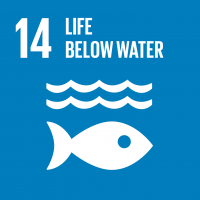

Life Below Water
TASA RECEIVES KONGSBERG’S FIRST UNMANNED SURFACE VEHICLE FOR FISHERIES
Peruvian fishing company TASA have today assumed ownership of the fishing industry’s first unmanned surface vessel (USV) for cost effective fish finding and oceanographic and marine resource monitoring. The Sounder USV from Kongsberg Maritime will be equipped with state-of-the-art acoustic technology including two echosounders, a low frequency sonar and a CTD sensor. Following the final sea trials in June in Norway, the vehicle enters Peruvian waters in September this year, and will start its mission to improve efficiency of capture operations and strengthen data acquisition capabilities to improve management of the available biomass.
The vessel, named Guardian del Mar, has a length of 8 meters and the capability of reaching a speed of 12 knots. She does not require crew on board and her operating costs will represent about 0.6% compared to an average vessel of the industrial fishing fleet. With a navigation autonomy of more than 400 hours, the USV completes its mission objectives autonomously under human supervision and will gradually be upgraded with developments on situational awareness and collision avoidance. During the initial phase of implementing this new technology in their daily operations, TASA will gain valuable experience and training by supervising the USV from a nearby mothership. The Sounder USV includes autonomous capabilities such as anti-grounding, automatic object detection, CTD casts and much more.
Guardian del Mar will join TASA's fleet of 48 vessels with the purpose of gathering information on the state of marine resources such as mackerel, horse mackerel and anchoveta, providing information on the location of schools to make fishing operations more efficient. In this way, the process of deploying the fleet will be made more efficient and bring about reductions in fuel consumption and the carbon footprint derived from these trips. The USV will also be used between fishing seasons to acquire oceanographic and fish research data to develop a better understanding of the ocean.
Likewise, it will allow the collection of oceanographic information and fishing information that will be available to scientific institutes and analysis departments of TASA to better understand the development of the marine sector related to fishing. Datawill also be made available to the Peruvian Navy to inform, identify, and allow people to board in emergency situations.
Other technical characteristics in the system include the use of sophisticated equipment such as Kongsberg’s world leading Simrad SX90 fishing sonar and ES80 echo sounder...Find out more
Life Below Water
Aker BioMarine: Antarctic krill is one of the most abundant marine biomasses on the planet and Aker BioMarine is a key contributor to the monitoring of the krill biomass on different scales through our presence in Antarctica. In 2019, in close collaboration with industry and science, we made possible the multinational large scale biomass survey to be carried out, from which the results later adjusted the total biomass up to 63 million mt krill in the area of and around the Antarctic Peninsula.
Compared to other fisheries monitored by FAO where precautionary catch limits are commonly set to 10% or more, the total allowable krill catch is limited to less than 1% of the stock biomass, leaving more than 99% of the biomass for krill feeding predators.
The Commission for the Conservation of Antarctic Marine Living Resources (CCAMLR) uses a precautionary, ecosystem-based approach designed to prevent krill harvesting that will have a negative impact on a harvested species or other species in the ecosystem. All of our catches are reported to CCAMLR and harvesting is restricted to a specific region of the Southern Ocean called Area 48. The management of the fishery is robust, as the consensus of 25 governments is needed to change any of the fishery regulations in the Antarctic. Find out more...
Life Below Water
CFG-Copeinca: SIMAR Program
In 2018 and, alliance with the NGO WWF, our corporate program "SIMAR" was created, which allows us to train, raise awareness and engage the sea collaborators of our 47 fishing vessels and shore workers, promoting and ensuring compliance with good fishing sustainability practices.
The program has developed a monitoring system focused on the conservation of the ecosystem and marine megafauna through tools that allow us to manage a project continuity plan over time, in order to promote sustainable fishing and contribute to improvement plans in the anchovy fishery.
Since 2020, information on sightings, interactions and bycatch of top predators has been collected in the mobile application "SIMAR electronic logbook", a technological tool used by the crew members on board. With the interest that more companies may have an application similar to the one we have developed, we signed an inter-institutional agreement with the National Fisheries Society in order to work together to standardize this version to be used by all the companies associated to the SNP within the framework of the Salvamares Program.
Partnership with BUREO:
Net Positiva claims to be a Bureo program that seeks to work collaboratively with the fishing industry to reduce the possible environmental impact that could be generated by disused fishing nets and, as a result, to seek positive solutions with such waste. The program also supports environmental and social projects in Peru that will be carried out at the locations where the waste is collected.
In an effort to take effective measures against the possible harmful impacts of discarded fishing gear, create positive recycling solutions for end-of-life material and support local environmental and social programs or projects, an alliance was established with BUREO, where it was agreed to work together to establish the Net Positiva Peru Program. This program guarantees a positive end-of-life solution for fishing nets through BUREO's innovative recycling process.
Life Below Water
Alltech Coppens: As the global population gets bigger, water resources around the world are going to get scarcer. With this in mind, we have worked hard to ensure that water used at the Alltech Coppens Aqua Centre is cleaned and re-used, promoting sustainability. Throughout the ACAC, we utilise recirculating aquaculture systems (RAS), which are specifically designed to use freshwater supplies as economically and efficiently as possible. The water that passes through these systems is filtered multiple times. What emerges is a pristine supply that can then be reused throughout the system, significantly lessening our burden on global resources. Any wastewater that does come from the ACAC is also purified using a helophyte filter. This elongated pond uses plants to slowly clean the water, making it suitable to return to nature. We work closely with local authorities to ensure this water is regularly quality checked and safe. With this filtering method, there is no energy required to clean the water and the water does not have to be transported. Find out more...
Life Below Water
EncompassTM, Scoular’s fishmeal brand, has launched a new marine sustainability program that incentivizes fishmeal producers to implement long-term sustainability practices that exceed standard certification requirements and meet growing consumer demand for high-quality ingredients. The goal is to collaborate with each customer to explore, define and customize their sustainability needs.
Key components of Scoular’s new marine sustainability program include:
- Introducing fisheries and customers to new products, services, technology and other investments that reduce waste and drive efficiency. Scoular, for example, can advise producers on best practices or spearhead large investment projects. The company currently is investing with processing partners in Warrenton, Oregon, to upcycle marine byproducts and trimmings into fishmeal and fish oil.
- Setting measurable goals. By 2023, the goal is that 80 percent of Scoular’s producers are program compliant and by 2025, 75 percent of the marine products sold will meet ASC and BAP standards.
Read more...
Life Below Water
TASA has developed and implemented its sustainable fishing model Cuidamar since 2008 in order to contribute from the private sector to the principles of the Ecosystem Approach and especially the Ecosystem Approaches to Fisheries (EAF).
Much of the success of this model is due to the involvement of the protagonists of the fishing activity- the fishermen, in monitoring and conservation activities of the marine ecosystem, turning them into agents of change. Thanks to the new Cuidamar App, we achieved more than 26,000 records, of which more than 6,000 report the presence of superior predators and shoals. In a preventive way, we have developed our own list, in which we detail the most common main species of top predators on our coastline and linked to our activity (birds, turtles, dolphins, whales, sea lions, among others), from the IUCN and CITES red list, as well as the species cataloged in Supreme Decree N ° 004-2014-MINAM (Environment Ministry). This tool is used by our Cuidamar to recognize species and their level of conservation status. In order to prevent our vessels from carrying out fishing activities within restricted areas (five nautical miles) or others delimited by the Ministry of Production, an additional provision of one nautical mile (nm) is incorporated.
In 2021, Cuidamar won the Latin American Green Awards in the ocean category.
Life Below Water
Cargill SeaFurther: The Source
Our feed is designed to nourish fish while making sure the environmental footprint of aquaculture is as small as possible. Our actions include:
- Increasing our use of novel ingredients from previously untapped nutrient resources like micro-algae and insect meal.
- Sourcing ingredients from certified sustainable fisheries, with a 2025 goal to source only from sustainably managed fisheries.
- Developing Key Data Elements (KDEs) to offer complete traceability of our marine ingredients, in line with the Global Dialogue for Seafood Traceability (GDST).
- Using trimmings to make up 40 percent of our marine ingredients – 88% of which comes from MarinTrust certified suppliers and almost 50% comes from fisheries aligned to Marine Stewardship Council (MSC). Our goal by 2025 is that all of our salmon feed marine ingredients will come from factories certified to MarinTrust standards and preferably from fisheries certified to standards equivalent to the MSC.
Life Below Water
Skretting: In certain regions of the world, aquaculture producers face a growing challenge in terms of access to safe, clean water. As a key part of Skretting’s ongoing commitment to improve the sustainability of the industry, we have extended our scope beyond the supply of sophisticated and sustainable feeds by creating the new global product line, AquaCare, specifically focused on providing practical solutions for improving water quality for fish and shrimp farming systems.
One Aquacare product, a simple-to-use probiotic, is designed to work preventatively with the objective to load the water in pond farming systems with beneficial bacteria that prevent the same space from being occupied by potentially harmful bacteria. The bacteria also improve water quality by actively utilising ammonia which is known to be lethal for fish at high concentrations, and consequently reducing the need for water exchange. Organic material, faeces, and small amounts of uneaten feed that would otherwise end up as sludge are consumed by the bacteria, enabling the faster preparation of ponds for the following cycle.
Life Below Water
Austral
Salvamares: Since 2017 we have been part of the Salvamares Program of the National Fisheries Society, the first private initiative worldwide that seeks to contribute to the sustainability of the marine ecosystem by monitoring and releasing the main species that interact in the fishing industry, mitigation capture of juveniles and the development of a large database of the marine ecosystem.
Pre-assessment of MSC: The National Fisheries Society and CEDEPESCA are working the pre-assessment to obtain the MSC certification for the anchovy fishery (North-Central Stock) with the support of SCS Global Services. It is expected that this preliminary assessment will be satisfactorily completed, and the certification process will begin by the end of this year.
Life Below Water
Brim: Work was done on a model that calculates the fuel use of the company's vessels. The project aims to develop technology that enables Brim’s fleet managers to better analyze the operational aspects of vessels, such as their speed, and to better connect fishing and processing, which makes it possible to reduce vessels' fuel use.
In accordance with SFS's environmental policy signed by Brim, Brim will replace refrigerants with refrigerants that do not cause a greenhouse effect at the first available opportunity. Emissions from refrigerants are 2,834 tCO2 equivalents in 2020. Brim's goal is to have completed the replacement of refrigerants for more environmentally friendly refrigerants by the end of 2025. When building and renovating ships, emphasis is placed on environmentally friendly refrigerants.
Much progress has been made in the making of fishing gear. Over the years, Brim has worked closely with fishing gear manufacturers to increase the catch-per-unit effort, improve the treatment of fish that go into the fishing gear and reduce energy use (oil) with lighter trawls.
In recent years, Brim has been involved in a collaborative project where the company's wetfish trawlers have been involved in the development and testing of new types of trawl boards that are intended to reduce the fuel use of trawlers as well as better protect the seabed.
Life Below Water
American Seafoods
LESS THAN 1% BYCATCH
Our bycatch rates for Wild Alaska Pollock are among the lowest of all fisheries and species around the world.
- CLEAN FISHERIES: The Bering Sea and the North Pacific Ocean rank among the world’s cleanest fisheries with low bycatches of nontargeted species.
- MID-WATER TRAWL NETS: Mid-water (or pelagic) trawl nets are designed to minimize bycatch and lessen the impact on the environment.
- ONBOARD OBSERVERS: Federally mandated bycatch quotas are monitored and recorded by onboard NOAA scientists.
- CHANGING COURSE TO AVOID BYCATCH: Members of harvest cooperatives share catch information in real time via satellite so vessels can alter fishing practices or move to another area to avoid excessive bycatch.
- MANAGEMENT BY COUNCIL: The North Pacific and Pacific Fishery Management Councils set strict bycatch limits on species that are reserved for other fisherman. If any cap is achieved, the fishery is closed.
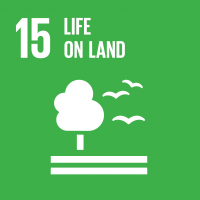

Life on Land
Skretting: As 2020 drew to a close, Nutreco And Skretting announced the launch of a new soy sourcing policy, with the aim to simplify complex certification schemes for the procurement teams. Forming part of Nutreco’s Sustainability RoadMap 2025, this policy also serves to facilitate the complete removal of deforestation from our supply chains by 2025. Deforestation is one of the major sustainability challenges for the aquaculture and agriculture sectors. Soy and oil palm are major deforestation drivers, with over half a million hectares of rainforest, peatland and savannahs destroyed each year for the expansion of these crops.
At Nutreco, we realise that certification is not the only tool to ensure responsible use of natural resources. However, where independent certification is an option and available, it can be an effective tool to verify conformity to its principles where information is otherwise difficult to track and trace. Certifications are also continuously evolving to reflect increase knowledge and ambition levels. To address the challenge of ensuring compliance with certifications, our procurement teams have developed this transparent policy, highlighting soy-producing regions on low and high risk of deforestation, and outlining the procurement requirements in areas of higher risk.
By the end of 2025, our ambition is to source soy and oil palm ingredients that are free from both legal and illegal deforestation, with the purpose of limiting our impact on biodiversity and climate change. Find out more...
Life on Land
Cargill SeaFurther: The Source
- Investing $30 million in new initiatives, like the Land Innovation Fund which finds transformative, inclusive solutions to preserve native vegetation globally.
- Sourcing soy responsibly – 95.68 percent of Cargill’s 2018–19 direct-sourced soy volumes were deforestation and conversion free (DCF) – and in our North Sea aqua nutrition business 100 percent of our soy is ProTerra certified.
- Collaborating with logistics companies to maximize efficiency in getting feed from farms to factories. To date, working in this way with Skretting in Norway has saved greenhouse gas (GHG) emissions equivalent to taking 7,500 cars off the road for a year.
-Working with our electricity supplier in Chile to source only renewable electricity for feed mills there from January 2020, is already saving GHGs emissions equivalent to taking over 2,500 cars off the road for a year.
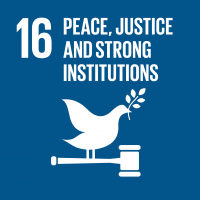

Peace, Justice and Strong Institutions
Hayduk: It is a priority for our organization to foster a business model committed to a sustainable management of the whole value chain, transverse to each of the processes within our production activity. In this context, we have been working towards a business model based on sustainability as a fundamental pilar and a positive influence in our main stakeholders, through sanitary prevention, through healthy diet promotion programs, through the execution of higher education programs with high-quality education institutions, through the safety and well-being of our employees, through loans given to our main allies, among other actions related to 10 of the 17 sustainable development objectives.
Ethics code: the code defines and establishes Hayduk guidelines for Ethics and Behavior. It is addressed to directors and employees, who have the obligation to comply with what is established at all times and before any circumstance, in and out of Hayduk facilities. At Hayduk we defend respect, commitment, integrity, team work and responsibility, which are the base of our relations, in and out of the organization and we reject all types of discrimination, defending equality among people and people’s rights.
Policy of corporate compliance: the Corporate Compliance policy purpose is to establish guidelines to prevent and detect, timely, any act related to corruption, asset laundering, bribery, terrorism funding, environment pollution, acts against food safety and pricing agreement. This policy applies to all employees, stockholders, directors, providers, clients, business partners and any other third-party tied commercially or economically to the organization.
This initiative corresponds to the commitment of goal 10.2 of OSH 10 Reduction of Inequalities and of goal 16.5 of OSH 16, Peace, Justice and Solid Institutions
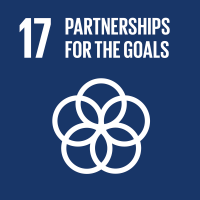

Partnerships for the Goals
Brim: Iceland's social policy of the fishing industry was created under the motto "Responsible fisheries in harmony with the environment and society". In September 2020, Brim, along with other companies within Fisheries Iceland, signed the policy. The foreword to the policy is as follows:
"The Icelandic seafood industry takes its role as a food producer and one of the pillars of the nation's economic prosperity seriously. Companies within Fisheries Iceland have established a social responsibility policy based on the United Nations Global Sustainable Development Goals. The United Nations Global Sustainable Development Goals were adopted by representatives of all UN member states in September 2015. Reference is made to the Goals in the fisheries’ social policy. The policy will be reviewed regularly. The company’s representative who signs the policy is responsible for its implementation".
Brim takes an active part in co-operation that promotes the sustainable utilization of fish stocks and responsibility towards the environment and society. The aim of Brim’s participation is to promote co-operation on the professional utilization of fish stocks within Icelandic jurisdiction and to ensure market access.
Iceland Responsible Fisheries is a non-profit organization that owns and manages the operation of trademarks on responsible fishing, Iceland Responsible Fisheries and is responsible for the certification of responsible fishing in Iceland. The brand’s marketing is handled by Business Iceland and Brim has a representative on the board of the non-profit organization and in the professional council of the fisheries sector at Business Iceland.
Brim is a shareholder in Icelandic Sustainable Fisheries ehf. which is intended to provide certification of the Marine Stewardship Council (MSC) standards. Participation in the programme provides access to the MSC certificates of fish stocks around Iceland.
Brim is a sponsor of the Global Sustainable Seafood Initiative (GSSI). The aim of GSSI's operations is to increase transparency in certificates of sustainability in fisheries and aquaculture. Companies that are members of GSSI have committed to approve certification projects that pass the GSSI audit when it comes to the sale of marine products.
Partnerships for the Goals
Austral: Certifications to the Integrated Sustainable Management System: We have seven international certifications of our Integrated Sustainable Management System: ISO 9001, ISO 14001, ISO 45001, FEMAS, Friend of the Sea, Marin Trust and BASC; as well as the SSINDEX sustainability seal aimed at our stakeholders: collaborators, clients, suppliers and the community.
SSINDEX: Since 2019, we have been part of the Stakeholder Sustainability Index (SS Index). This methodology allows to know the perception of the interest groups regarding the social, environmental and governance management of the company. The SSINDEX 2020 achieved a satisfaction level of 81% in our stakeholders, four additional points to the result obtained in 2019.
Global Pact: Since 2012 Austral has been a signatory of the United Nations Global Compact, aligning our performance with the Ten Principles focused on human rights, labor standards, the environment, and the fight against corruption.
"Innovate con Austral" program: This Supplier Development Program aims to strengthen the value chain, improving the productivity and performance of 17 strategic suppliers, in alliance with Innóvate Peru of the Ministry of Production (PRODUCE). The program lasts 28 months, divided into two stages. 1st) Diagnosis and planning of improvements and 2nd) Implementation of improvement plans.
SCORE program: It is a training and technical assistance program promoted by the International Labor Organization (ILO) aimed at small and medium-sized companies with the aim of increasing their productivity and improving working conditions under a model of cooperation between workers, workers and management. Currently, we are developing the second module of this platform corresponding to "Safety and Health at Work: a Platform for Productivity" in four strategic suppliers of our fleet. Find out more...
Partnerships for the Goals
CFG-Copeinca: Certifications
CFG-Copeinca is certified in the following standards:
- Standard GMP+B2, Production of ingredients (fishmeal and fish oil). The company, as a producer of fishmeal and fish oil, is part of the food chain and, in line with increasing market demands, has GMP+B2 certification for the production process at all its sites. It is from a Quality Management System for enterprises that process raw materials. This system seeks to guarantee the safety of our products based on the principles of the HACCP system and the management requirements of the ISO 9001 Standard.
- MarinTrust Standard focused on three pillars: responsible sourcing, responsible traceability and responsible production. The Marin Trust Standard has been developed as a credible and robust tool that enables raw material producers in the fishmeal and fish oil industry to demonstrate responsible practice.
The MarinTrust Standard guarantees the following:
- Eradication of illegal, unregulated and undeclared fishing material used as MarinTrust-approved raw material.
- Raw materials used in the production of marine ingredients from responsibly managed fisheries.
- Promotion of efficient marine ingredient production practices to reduce the environmental impact of the fishmeal and fish oil manufacturing process.
- Safe manufacturing of marine ingredients through Good Manufacturing Practices.
- Effective traceability systems are in place to ensure that MarinTrust-compliant marine ingredients may be traced back to the approved MarinTrust raw material fishery.
- Protection of social rights and welfare of employees in factories producing marine ingredients.
- Friend of the Sea Standard certifies sustainable fishing practices. This certification demonstrates the company's commitment to the sustainability of the resource, good fishing practices and responsibility during the capture of raw material.
- GMP+B3 Standard, Commercialization of our products. Quality and food safety in commerce and distribution, ensuring food safety and customer satisfaction.
- ISO 14001 Standard: The Company has implemented an Environmental Management System (EMS) based on the ISO 14001:2015 Standard. Among the benefits of having an EMS based on ISO 14001:2015 is the focus on risk, cost reduction, greater customer and end-consumer satisfaction, access to a “green market”, and improved relations with local environmental authorities.
- BASC: is a business program established by the private sector and is supported by U.S. Customs and national and international public institutions. It promotes, among foreign trade operators (exporters, customs agents, freight forwarders, carriers, warehouses and other logistics operators), the Normalization and Standardization of security procedures in the export chain, preventing risks of illicit drug trafficking, terrorism that affect the company's image.
Social Responsibility Program:
In our organization, we believe in and promote the sustainable development of our society. Therefore, our Social Intervention Plan is based on four guidelines, which serve as the basis for guiding our community development actions. To this end, we work in coordination with our strategic allies, so that we can make a positive contribution to the communities in our direct area of influence in all the areas where we operate. These include actors such as regional governments, municipalities, hospitals, health centers, educational institutions, non-governmental organizations, among others.
Partnerships for the Goals
Aker BioMarine has partnered with the Antarctic and Southern Ocean Coalition (ASOC) and WWF-Norway to establish the Antarctic Wildlife Research Fund (AWR). The fund's purpose is to facilitate and promote Antarctic marine ecosystem research. Since its inception, AWR has funded nine research projects that will improve the management of the fishery for Antarctic krill. Aker BioMarine has committed to supporting the Antarctic Wildlife Research Fund (AWR) with USD 1 million over a period of five years.
In a united krill industry drive, Aker BioMarine is promoting effective sustainability practices through the Association of Responsible Krill Harvesting Companies (ARK). In 2018 ARK adopted its Voluntary Penguin Buffer Zones to protect penguins during their breeding season - later in 2020 enhanced to encompass a permanently closed area on the tip of the Antarctic Peninsula









